Work in progress: What you need to know to become an appraiser (and maintain your skills)
by charlene_voisin | July 1, 2015 9:00 am
By Gina D’Onofrio
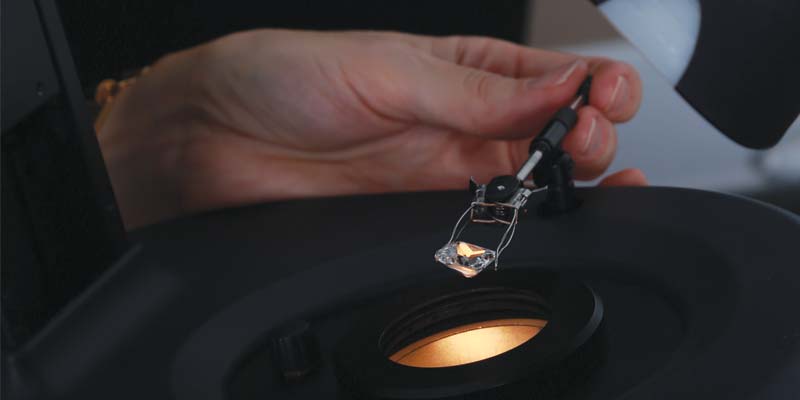 [1]
[1]
So you want to be an appraiser. Maybe you’re a graduate gemmologist, bench jeweller, or a sales associate and you’re ready for a new challenge. Where do you start? In this article, I hope to shed some light on what we do and what steps you need to take to gain professional appraisal skills and knowledge. As my colleague Mark T. Cartwright iterated in this very column for many years, appraising jewellery is an endeavour requiring ongoing education. Entering this field is by no means the end of your training, but rather just the start. Indeed, maintaining a working knowledge of jewellery and updating your skills are the most important investments we can make in ourselves and our businesses. This article is not a complete reference, but rather a place to start and one which is based on my personal experience and perspective.*
Appraising 101
What is a professional appraiser? According to the Uniform Standards of Professional Appraisal Practice (USPAP), an appraiser is “one who is expected to perform valuation services competently and in a manner that is independent, impartial, and objective.” With that in mind, if you buy or sell the jewellery you appraise, it would be very difficult to remain impartial and objective. This is why independent appraisers are sought after. Estates, the courts, and the general public are looking for an unbiased, researched opinion of value.
Being an independent appraiser can be extremely demanding, though equally rewarding. After meeting with clients, a large portion of your time will be spent alone, testing, grading, photographing, and documenting jewellery. Then there is the research. By that I mean online, by phone, and on foot from store to store.
In between appraisal assignments, you will likely attend conferences, trade shows, visit vendors, and read journals and trade magazines to stay up to date with the latest trends, pricing, and news. All this can leave very little time to manage your business, which may require hiring help to oversee everything from bookkeeping to marketing and everything in between.
There are many paths to becoming an appraiser; over the years, I’ve discovered the most direct route is not necessarily the best. What I do know is varied industry experience can only enhance your appraisal skills. Take, for instance, a colleague of mine who was a bench jeweller for most of his career before making the switch to retail. He studied gemmology, then appraisal theory, and is now working toward accreditation with the American Society of Appraisers (ASA). His knowledge of construction methods is valuable, as is the time he spent dealing with retail clients.
I worked in many sectors of the jewellery industry before settling on appraisals. My experience started with selling opal, then retail sales of contemporary jewellery, antique jewellery, and watches. I have been involved with jewellery design and production for both the wholesale and retail markets, and have spent considerable time working at jewellery auction previews. This exposure to different areas of the jewellery industry applies directly to my skills as an appraiser, as it would be extremely difficult to appraise something with which I am unfamiliar. It takes time to develop your ‘eye,’ recognize period jewels and their reproductions, in essence, become a connoisseur. It also takes time to develop a good work flow. This is the process that leads from the initial client meeting through to evaluation, research, analysis, and value conclusion. These are the skills you develop over time or by working with a more experienced appraiser.
On the level
Over the years, the appraisal profession has evolved. There are many levels of appraising and each requires increased expertise and education.
Level 1: Appraisals for insurance coverage
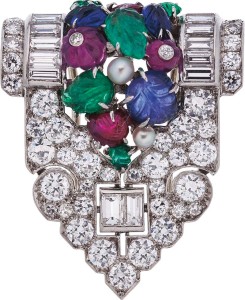 [2]
[2]Private individuals purchasing insurance coverage for their jewellery require an appraisal report for replacement value, and many appraisers make a living from this type of report writing. This service encompasses ‘replacement value new,’ ‘comparable’ or ‘reproduction.’ Appraisal reports of this kind provide a detailed description of the item’s value elements (e.g. diamonds, gemstones, branding) and its condition. It also includes a description of the market where the piece is commonly bought and sold.
These appraisals provide researched, real-world prices at which the jewellery can easily be replaced, unlike ‘vanity appraisals’ where value is overly inflated. The client’s insurance company uses the report to decide whether they will provide coverage and the value it includes plays a large role in setting the insurance premium. When the client suffers a loss, the same report is subject to even more scrutiny to replace the item or for settlement purposes.
Level 2: Appraisals for resale
Used by private individuals, financial institutions, trusts, and estates, appraisals for resale require advanced education and specialized training in market analysis and report writing. Once you understand how your report is being used, you will then choose the type of value to research. For example, a client wishing to consign her pieces to a jewellery store requires a different type of value to one using his jewellery as collateral for a loan. These value types include ‘market value,’ ‘marketable cash value,’ ‘orderly liquidation,’ and ‘forced liquidation.’
Level 3: Appraisals for government
If you choose to perform this type of appraisal service, you will need an understanding of government requirements and their definitions of value. These appraisals are used by trusts and estates for estate tax filing and also by individuals making a tax deduction for donating jewellery to a charity. Determining fair market value is often required and the definition of this value is provided by the federal government. There is increased liability to the appraiser for this type of service. As such, do not attempt to provide it without direct knowledge of comparable market values.
Level 4: Appraisals for litigation
Experienced appraisers are sometimes asked to serve as an expert witness for litigation. This can involve appraisal report writing, appraisal reviews, pre-trial consultation for attorneys, and court testimony. Needless to say, there is increased liability with this type of appraisal work, but also increased rewards. Once again, advanced education is required.
Class is in session
The following are the four main categories in which appraisal education can be divided.
Gemmology and diamond grading
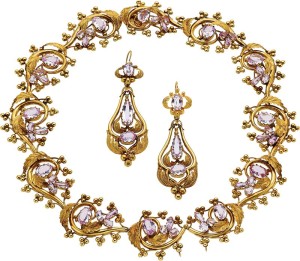 [3]
[3]Completing Gemological Institute of America’s (GIA’s) Graduate Gemologist (GG) program is step one in your path to becoming an appraiser. That said, your hard work qualifies you to identify and grade diamonds and gemstones. My first suggestion is to practice these skills as often as possible because it will take considerable experience to identify and grade with reasonable speed and accuracy.
Remember, when performing gem identification and diamond grading for appraisals, most tests will be conducted on mounted gemstones. Given this restriction, you will often need to identify gemstones without testing their refractive index (RI). How many stones can you identify just by using the spectroscope, dichroscope, colour filters, and ultraviolet (UV) light? Get together with other gemmologists in your area to exchange test stones and ideas. Attend conferences, read industry journals, and keep up with the latest developments in treatments and synthetics. This education never ends and lack of knowledge can cost you or your client dearly.
There are many opportunities for ongoing education. Here are a few to get you started:
- The Canadian Gemmological Association (CGA) is a source of gemmological training, providing courses throughout the year in addition to an annual conference (www.canadiangemmological.com[4]);
- École de Gemmologie de Montréal introduces students to gemmology (www.ecoledegemmologie.com/en/home/mission[5]);
- Canadian Jewellers Association’s (CJA’s) Jewellery Educational Training System (JETS) is a prerequisite to its Accredited Appraiser Program (AAP);
- Olive Frame Gemological Seminars offers gem courses for jewellery professionals (www.oliveframe.com[6]);
- Accredited Gemologists Association (AGA) holds conferences in Tucson and Las Vegas scheduled alongside American Gem Trade Association’s (AGTA’s) GemFair and JCK show (www.accreditedgemologists.org[7]);
- ҬGemworld hosts its annual World of Gems conference, as well as provides classes in gem grading, gem treatments, and pricing internationally and throughout the United States (www.gemguide.com/events[8]);
- GIA offers a plethora of gemmology-related classes that extend beyond its GG program. GIA also provides lectures and workshops at their local alumni chapters in addition to industry conferences (www.gia.edu/gem-education[9]); and
The Annual Sinkankas Symposium focuses on a different gemstone each year and is co-sponsored by the Gemological Society of San Diego and GIA. This year, opal was the symposium’s featured gemstone (www.sinkankassymposium.net[10]).
Jewellery construction and history
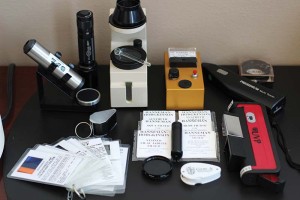 [11]
[11]This information takes some time to acquire, but can be gleaned in many ways. Those of you with a background in design and manufacturing already possess a great deal of this knowledge. This education is available piecemeal through various schools and organizations. I suggest you look into the following for classes held close to you:
- “¨Jewellery programs offered at Canadian post-secondary schools like Toronto’s George Brown College;
- Master Valuer professional jewellery appraisal program assists professionals in attaining the accredited level of the Canadian Jewellers Association (CJA) Accredited Appraiser Program (www.mastervaluer.com/[12]);
- ҬAssociation for the Study of Jewelry and Related Arts (www.asjra.net[13]);
- Antique Jewelry and Art Conference (www.jewelryӬcamp.org[14]);
- American Society of Jewelry Historians (www.jewelryӬhistorians.org[15]); and
- Revere Academy of Jewelry Arts (www.revereacademy.com/Ӭclasses-diplomas/[16]).
You can also consider attending workshops and lectures presented at conferences throughout the year, such as Original Miami Beach Antique Show’s ‘Jewelry History Series (www.originalmiamibeachantiqueshow.com/show/jewelry-series[17]).
Compiling a comprehensive library on antique and period jewellery is essential. Even if you have limited funds, there are basic references with which you can start. Here are three must-haves:
- Warman’s Jewelry: Identification & Price Guide (5th edition) by Christie Romero;
- Answers to Questions about Old Jewelry (8th edition) by C. Jeanenne Bell; and
- Understanding Jewelry (3rd edition) by David Bennett and Daniela Mascetti.
Appraisal report writing, ethics, and standards
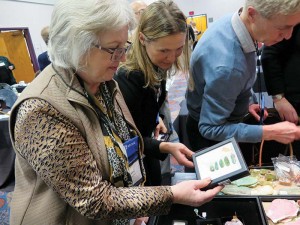 [18]
[18]- CJA and Jewellers Vigilance Canada (JVC) have developed appraisal guidelines. Candidates for the Certified Appraisal Professional-CJA (CAP) program are required to undertake practical and theoretical exams regarding their appraisal skills (www.jewellersvigilance.ca[19]).
- Professional appraisers in the United States and Canada often choose to comply with USPAP.
These are minimum standards for appraisal development and report writing for all appraisal disciplines (e.g. real estate appraising, art appraising, and jewellery appraising), and all must follow the same standards and ethics.
Appraisal theory and methodology courses should cover the following:
- basic economic theory;
- value definitions and how they are applied;
- different approaches to value with a focus on cost;
- market data and income approach;
- market research;
- methods of analysis;
- report writing standards; and
- Ҭdescriptive elements for diamonds, gemstones, jewellery, and watches.
Keep in mind course material can vary significantly. Some courses are more comprehensive, but a little outdated, while others focus more on personal property in general with little application to gems and jewellery. If you have the budget, I recommend taking more than one to have an understanding of the varying schools of thought. With that in mind, please take some time to review the curriculum of each course before making your selection.
The following is a list of appraisal course providers of which I am familiar and is by no means complete:
- ҬAccredited Appraiser Program (AAP): canadianjewellers.com/event/jewellery-accredited-appraiser-program/[20]
- American Society of Appraisers (ASA): www.appraisers.org/Disciplines/Gems-Jewelry[21]
- American Gem Society (AGS): www.americangemӬsociety.org/theadvancedpersonalp-2[22]
- California Institute of Jewelry Training’s (CIJT’s) Master Valuer program: www.jewelrytraining.com/master-valuer.php[23]
- International Society of Appraisers: www.isa-appraisers.org/education[24]
- National Association of Jewelry Appraisers: www.najaappraisers.com/html/conferences.html[25]
Â
Equipment, supplies, and resources
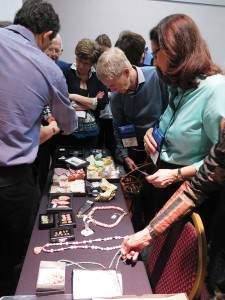 [26]
[26]Appraising is a costly business to set up. It can take years for some to acquire the equipment, software, references, and resources needed. If you are fortunate enough to be appraising for a company with its own lab equipment and resources in place, skip this next section. The type of gemmological equipment you purchase depends on how you choose to conduct your business. In-office appraisers require desk-top models, while onsite appraisers need portable laboratory solutions. I started on GIA’s Maxi-Lab and used it in my office and for onsite assignments until I could afford to buy a second one.
If you wish to write your reports in something other than Microsoft Word, there are two popular options:
- GemGuide Appraisal Software: www.gemguide.com/gemguide-appraisal-software/[27]
- “¨Quantum Leap’s Professional Appraisal Software: www.qlss.com[28]
The following are additional expenses the independent appraiser needs to consider:
- photo editing, spreadsheet, and database software;
- Ҭprice guides, books, and references;
- travel expenses and registration for conferences and continuing education;
- insurance;
- office rent;
- marketing; and
- bookkeeping and attorney fees.
It takes time to acquire the education, expertise, and equipment needed to become a professional appraiser. My suggestion is to start with education, as equipment can be purchased over time while you gain experience in other areas of the jewellery industry. Attend appraiser conferences and network with experienced appraisers. You will find them to be your best ally once you are ready to take the leap. I found my place in the appraisal community and feel privileged to be working in such a fascinating field.
 Gina D’Onofrio has provided gemmological and jewellery appraisal services since 1992. She is an accredited senior appraiser, master gemmologist appraiser (American Society of Appraisers) and certified senior member of National Association of Jewelry Appraisers. D’Onofrio is co-instructor for the American Society of Appraiser’s GJ-202 appraisal report writing for insurance coverage class. She may be contacted via e-mail at ginajewels@gmail.com[29].
Gina D’Onofrio has provided gemmological and jewellery appraisal services since 1992. She is an accredited senior appraiser, master gemmologist appraiser (American Society of Appraisers) and certified senior member of National Association of Jewelry Appraisers. D’Onofrio is co-instructor for the American Society of Appraiser’s GJ-202 appraisal report writing for insurance coverage class. She may be contacted via e-mail at ginajewels@gmail.com[29].
- [Image]: http://www.jewellerybusiness.com/wp-content/uploads/2015/11/1.Scope_closeup.jpg
- [Image]: http://www.jewellerybusiness.com/wp-content/uploads/2015/11/4.Art-Deco-Clip.jpg
- [Image]: http://www.jewellerybusiness.com/wp-content/uploads/2015/11/5.Late-Georgian-Suite.jpg
- www.canadiangemmological.com: http://www.canadiangemmological.com
- www.ecoledegemmologie.com/en/home/mission: http://www.ecoledegemmologie.com/en/home/mission
- www.oliveframe.com: http://www.oliveframe.com
- www.accreditedgemologists.org: http://www.accreditedgemologists.org
- www.gemguide.com/events: http://www.gemguide.com/events
- www.gia.edu/gem-education: http://www.gia.edu/gem-education
- www.sinkankassymposium.net: http://www.sinkankassymposium.net
- [Image]: http://www.jewellerybusiness.com/wp-content/uploads/2015/11/3.Gem_tools_2.jpg
- www.mastervaluer.com/: http://www.mastervaluer.com/
- www.asjra.net: http://www.asjra.net
- www.jewelryӬcamp.org: http://www.jewelry
- www.jewelryӬhistorians.org: http://www.jewelry
- www.revereacademy.com/Ӭclasses-diplomas/: http://www.revereacademy.com/
- www.originalmiamibeachantiqueshow.com/show/jewelry-series: http://www.originalmiamibeachantiqueshow.com/show/jewelry-series
- [Image]: http://www.jewellerybusiness.com/wp-content/uploads/2015/11/IMG_0039.jpg
- www.jewellersvigilance.ca: http://www.jewellersvigilance.ca
- canadianjewellers.com/event/jewellery-accredited-appraiser-program/: http://canadianjewellers.com/event/jewellery-accredited-appraiser-program/
- www.appraisers.org/Disciplines/Gems-Jewelry: http://www.appraisers.org/Disciplines/Gems-Jewelry
- www.americangemӬsociety.org/theadvancedpersonalp-2: http://www.americangem
- www.jewelrytraining.com/master-valuer.php: http://www.jewelrytraining.com/master-valuer.php
- www.isa-appraisers.org/education: http://www.isa-appraisers.org/education
- www.najaappraisers.com/html/conferences.html: http://www.najaappraisers.com/html/conferences.html
- [Image]: http://www.jewellerybusiness.com/wp-content/uploads/2015/11/IMG_0033.jpg
- www.gemguide.com/gemguide-appraisal-software/: http://www.gemguide.com/gemguide-appraisal-software/
- www.qlss.com: http://www.qlss.com
- ginajewels@gmail.com: mailto:ginajewels@gmail.com
Source URL: https://www.jewellerybusiness.com/features/what-you-need-to-know-to-become-an-appraiser-and-maintain-your-skills/